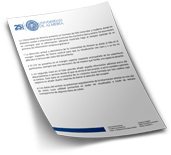Objectives and Competencies
{{pre.error[0].message}}
{{pre.error[0].message}}
The main objective of this master's degree is to provide students with academic training that allows them to acquire and/or consolidate general and specific skills, and to pursue employment opportunities in the area of School Coexistence. Each of the modules/pathways follows this same objective, focusing on the fields of psychological intervention and school intervention, respectively.
Through it's two pathways, the degree programme tries to respond to the specific needs of school coexistence intervention in the different contexts - at the specific individual level outside the classroom by providing skills, modifying negative behaviours and intervening in the associated personality issues; and at the school level, by providing tools for improving coexistence within the classroom, not only to the professionals that comprise the Guidance Team but also to the teachers themselves. In both cases, these graduates can also engage in research, thereby responding to the new educational and training demands of existing and future teachers, and allowing them to carry out the Doctoral Thesis.
Competencies are the identifiable and evaluable set of knowledge, attitudes, values, abilities and skills, related to each other, which will allow the student to exercise the professional activity according to the requirements and standards used in the corresponding occupational area.
All the master’s at the University of Almeria explicitly include two types of competencies:
The basic competencies for all master’s degrees were defined in R.D. 1393/2007 of 29 October. They will be progressively adapted and as established by the current R.D. 822/2021 of 28 September, which establishes the organization of university education and the quality assurance procedure.
| CB6-To possess and understand knowledge | That students have demonstrated they possess and understand knowledge that expands and improves on that associated with the first cycle, providing them a basis or opportunity for originality in developing and/or applying ideas, often in a research context. |
| CB7-Application of knowledge | That students know how to apply the knowledge gained and are capable of problem-solving in new or unexplored settings within broader (or multi-disciplinary) contexts relating to their field of study. |
| CB8-Ability to make judgements | That students can integrate knowledge and face the complexity of making judgements based on incomplete information which, being incomplete or limited, includes reflections on the social and ethical responsibilities linked to applying their knowledge and judgements. |
| CB9-Communication capacity and social aptitude | That students know how to communicate their conclusions –and the ultimate knowledge and reasons that support them– to both specialized and non-specialized audiences in a clear and unambiguous manner. |
| CB10-Learning skills | That students possess the learning skills that will enable them to continue studying in a way that will be largely self-directed or autonomous. |
The specific competencies provided by this degree are listed in the degree report.
